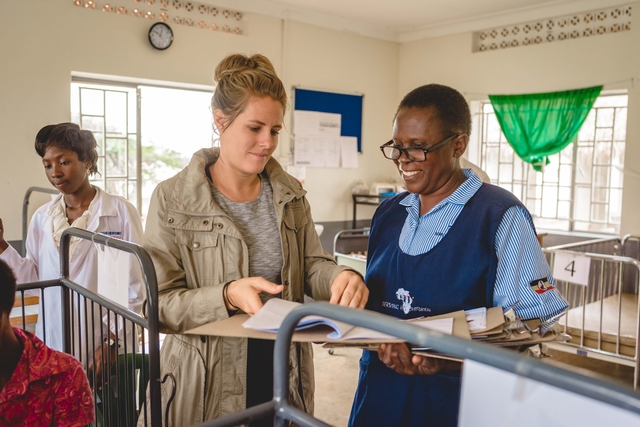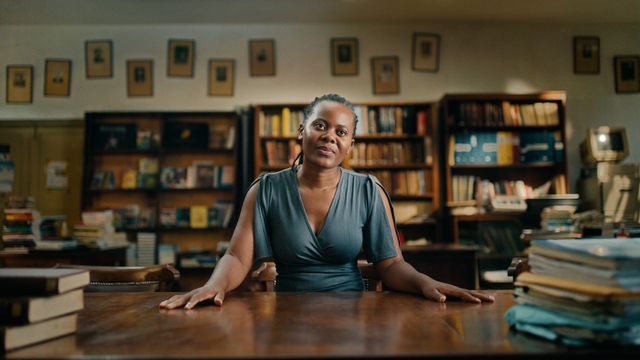
In 2019, a devastating news story ricocheted around the digital-media echo chamber. As one headline summarized it: “American Woman Accused of Letting Hundreds of Ugandan Kids Die at a Fake Clinic.” Her name was Renée Bach, and she faced a lawsuit on behalf of two Ugandan mothers who alleged that their children died after being treated at a malnutrition clinic where Bach practiced medicine without a license. (The case was settled in 2020.)
The three-part HBO docuseries Savior Complex—premiering Sept. 26, with the remaining two episodes set to air the following night—revisits the thorny affair, previously dissected by The New Yorker and in the podcast The Missionary, adding updates, on-camera interviews, and nuance without sacrificing accountability. Filmmaker Jackie Jesko’s disinclination to paint Bach as a bloodthirsty butcher or her detractors as heroic racial-justice crusaders is sure to rankle some viewers. But what emerges instead are revelations more astute and more disturbing, forged in a crucible of race, religion, money, and global politics.
A high school graduate with no formal medical training, Bach founded the charitable organization Serving His Children as a 19-year-old missionary in 2009. In its early years, the clinic didn’t employ any doctors. Eyewitnesses assert that Bach administered IVs, prescribed medicine, and even, on at least one occasion, performed a blood transfusion. Footage that situates the subject in her small Virginia hometown, gently caring for her two daughters, sits unsettlingly beside the delusions and evasions of a sort of missionary Elizabeth Holmes.

That a white, college-aged American woman was allowed to play doctor, with a stethoscope slung around her neck, in her own unlicensed African clinic is self-evidently infuriating. But what Jesko uncovers isn’t the individual malice of a typical true-crime psychopath. It’s something more frightening in its tenacity: the collective, racially charged hubris of well-meaning, white, often
evangelical Americans in Africa. One image used to promote Serving His Children shows Bach standing with her head serenely bowed and her arms outstretched, lit like Jesus in a Renaissance painting. Interviewees recall her overruling treatment plans made by credentialed Ugandan medical staff.
The irony is that Bach's main foe, a self-described “white savior in recovery” who co-founded a group called No White Saviors, also starts to look pretty self-serving. Each woman seems less motivated by a genuine desire to help starving children than by a compulsion to bolster her own messianic self-image. Both capitalize on their status as white Westerners in a poor, Black society. Savior complex isn’t just a diagnosis. Like the military-industrial complex, it’s a system that reinforces entrenched power structures.
When Savior Complex does identify heroes, they’re the kind who rarely make headlines stateside: Ugandan doctors, social workers, activists. People doing their best to serve their communities without the funds Americans can easily raise—and would do better to humbly contribute to under-resourced local change makers. In a refreshing contrast to the white saviors, the Ugandan human rights lawyer who represented the mothers, Primah Kwagala, explains why she doesn’t let her own ambitions detract from her clients’ needs: “Even if I want to have cases to my name and precedents lined up before me, I’m not the one that lost kids here.” For as long as Westerners use African poverty as a means to personal fulfillment, no white saviors will be an empty slogan.
More Must-Reads from TIME
- Cybersecurity Experts Are Sounding the Alarm on DOGE
- Meet the 2025 Women of the Year
- The Harsh Truth About Disability Inclusion
- Why Do More Young Adults Have Cancer?
- Colman Domingo Leads With Radical Love
- How to Get Better at Doing Things Alone
- Michelle Zauner Stares Down the Darkness
Contact us at letters@time.com